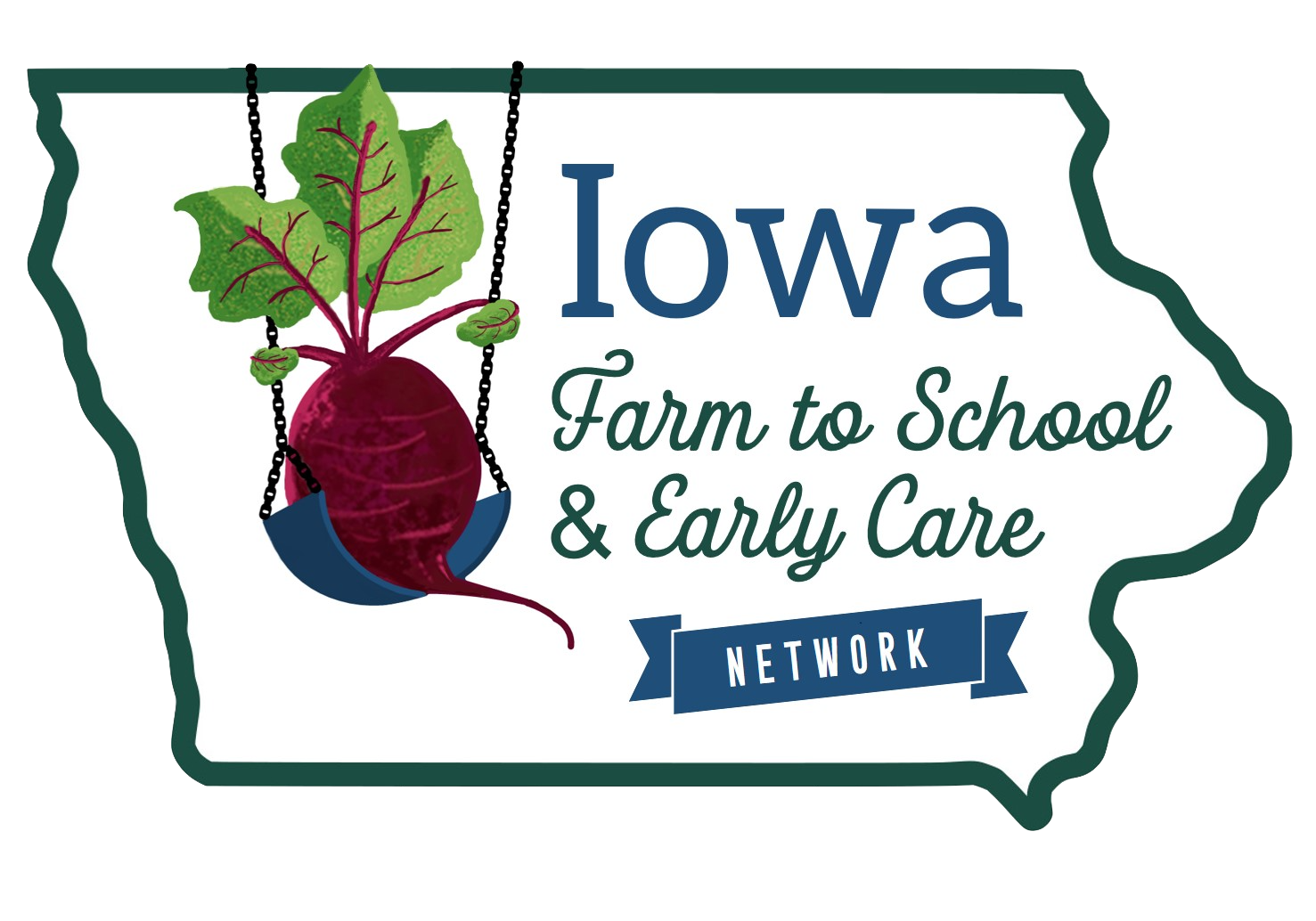Food Education and Gardening
Farm to school and early care initiatives grow opportunities for hands-on, experiential learning to create positive, memorable experiences for youth. From on-site gardens, to cafeterias and learning kitchens, food education can take place across school and early care settings. The goal of the Iowa Farm to School and Early Care Coalition’s Food Education Strategy Team is to incorporate culturally responsive food education into existing policy, environments, and curriculum. This team has developed the following definitions and list of recommended resources to support Iowa educators.
Culturally Responsive Food Education:
Culturally Responsive is a research-based approach that makes meaningful connections through culture (historical and present), language, and life experiences. Culturally responsive practices:
Build in equity and inclusion
Allow student/learner voice and choice (student-centered)
Reflect the culture of the children and families served and provides opportunities to learn about other cultures
Food Education is any set of conditions (policies, practices, environments) and/or learning experiences (education, curriculum) designed to increase the knowledge, skills, and attitudes related to nourishing healthy (physical, social, emotional) food choices for self and community.
Recommended Food Education and Gardening Resources
USDA Team Nutrition
Team Nutrition has several resources to connect nutrition education to school and early care gardens, local farms, and farmers markets. Educators can use this evidenced-based curricula to integrate garden-based nutrition education lessons into core educational subjects.
Resource Links:
Healthiest State Initiative
The “5-2-1-0 Healthy Choices Count!” campaign supports sites to make policy, systems and environmental shifts to center healthy habits. These activity resources offer ideas for how to do this in early care settings.
Resource Link:
The Policy Equity Group
By bringing farm-to-ECE learning into the classroom, children become creative, confident thinkers and develop a foundation for lifelong healthy food choices. These resources provide simple guidance to enhance existing teaching practices that support the health and wellness of our youngest generation and their families.
Resource Links:
Next Step Adventure
The Next Step Team presents two sets of lessons, one for grades K-2 and one for 3-4. Lessons focus on academic skills throughout the garden season, from planning, planting, caring for and harvesting in the garden. ALL lessons are linked to grade level science, math, social studies, and 21st century skills standards in the Iowa Core.
Resource Links:
Northeast Iowa Food and Fitness Initiative
The Farm to Preschool Curriculum from Northeast Iowa Food and Fitness Initiative includes a multitude of teacher resources, links to posters and other visuals, cooking and gardening activity ideas, and lesson plans.
Resource Link:
FoodCorps
FoodCorps’ hands-on cooking and gardening lessons (for grades K-5) can be adapted and used at school or home by any educator. Sprout Scouts is a kids club for elementary-aged students that links Common Core and other academic standards to food and health in fun and engaging ways.
Resource Links:
Iowa Dept of Public Health
Pick a better snack™ brings 30-minute monthly lessons into K-3rd grade classrooms. Students can see, touch, smell and taste fruits and vegetables, learn about where they grow and ways to eat them. Hands down (or thumbs up in this case), kids love tasting new and different fruits and vegetables. Coming 2021: local food lessons for school and summer months!
Resource Link:
Choose Iowa™ Food of the Month Campaign
The Iowa Department of Agriculture and Land Stewardship Choose Iowa™ campaign was developed to create support for farmers, drive demand for the products they produce, and generate excitement about agriculture innovation happening in Iowa. The Iowa Department of Education received a USDA Farm to School grant to expand the campaign to schools, childcare and summer food programs through the development of Choose Iowa™ Food of the Month learning activities and promotional materials that feature locally grown and produced foods.
¡Haga clic aquí para acceder a todos los recursos en español!
Choose Iowa™ is a program of the Iowa Department of Agriculture and Land Stewardship. Find more information here.









